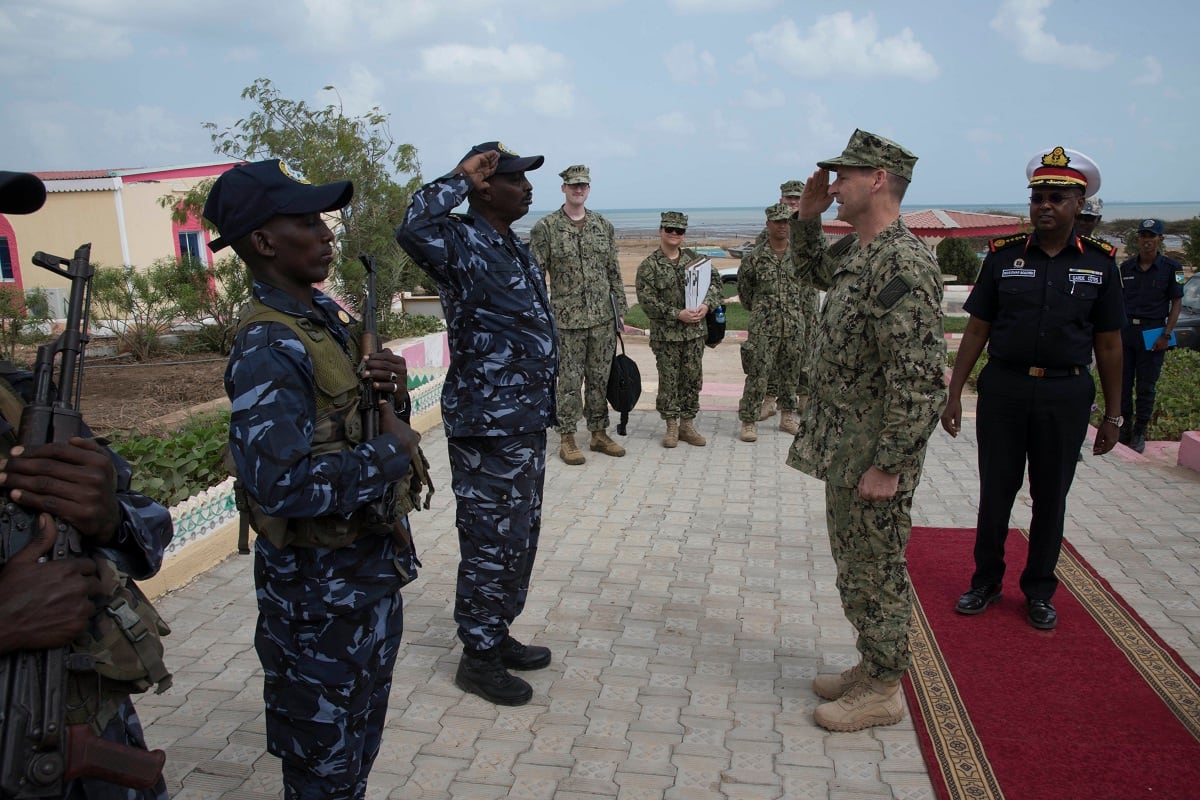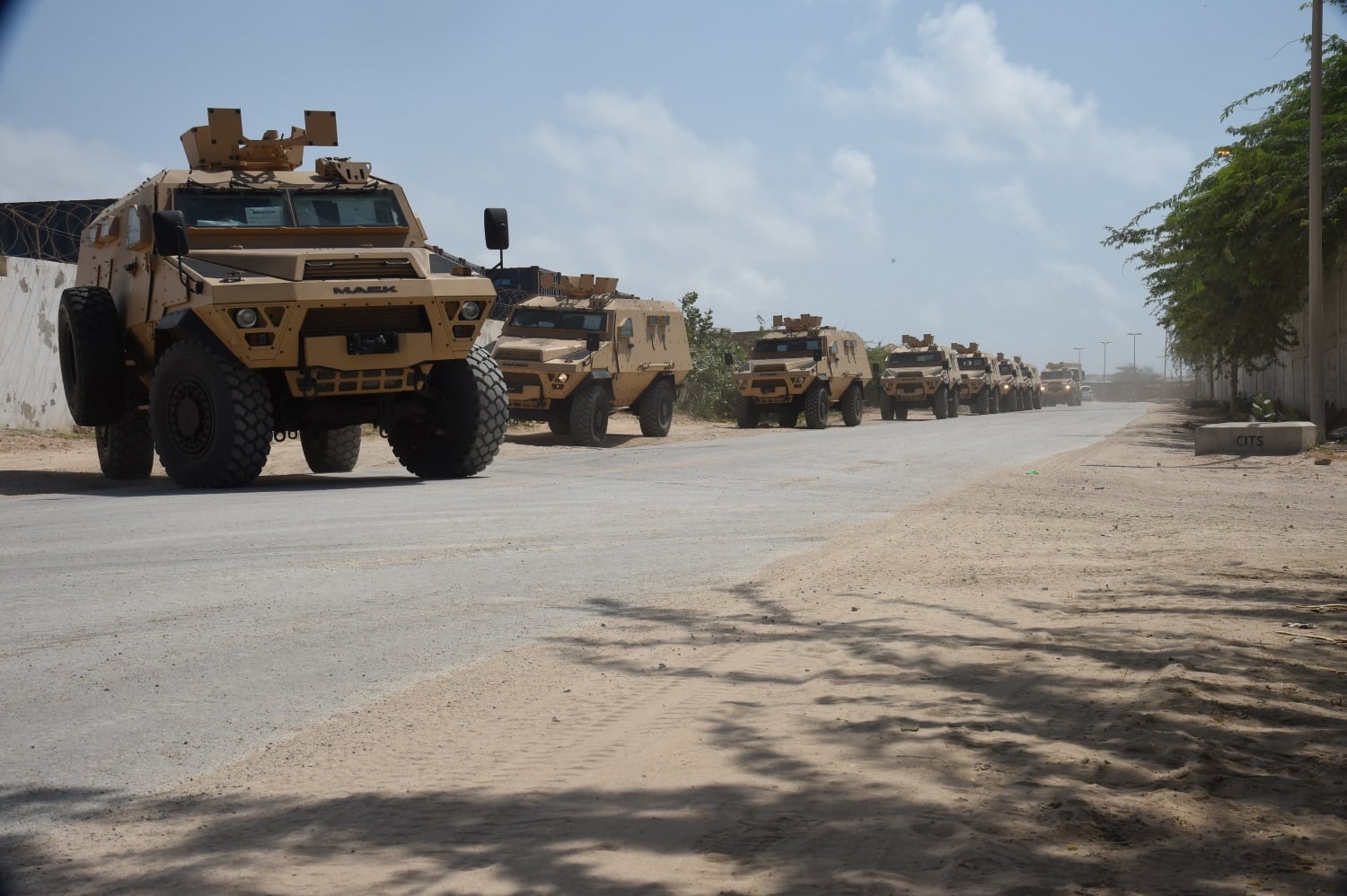ACCRA, Ghana — Rallying behind the slogan of “Ghana First,” thousands of people in the West African nation have protested a new defense cooperation deal with the United States, with many in the longtime U.S. ally saying they worry the expanded military presence could attract extremists and harm their country’s sovereignty.
The demonstrations are another signal of discontent in Africa with the Trump administration as its counterterror efforts across the continent grow.
Hundreds of opposition groups organized by the Ghana First Patriotic Front marched in the streets of the capital, Accra, on Wednesday carrying signs that said “Our future is at stake” and “Ghana not for sale.” They vowed to continue protests until President Nana Akufo-Addo’s government listens to their concerns about giving the U.S. too much control in their own country.
RELATED

The defense agreement ratified by Ghana’s Parliament last week, and boycotted by opposition lawmakers, gives the U.S. military unimpeded access to facilities, including Ghana’s airport runways and allows the U.S. to deploy troops there. The agreement also gives the U.S. access to Ghana’s radio channels and allows the U.S. to operate its own telecommunications system.
In return, the U.S. will contribute about $20 million to Ghana’s military in training and equipment.

The approval in Parliament set off loud concerns, including rumors about a possible U.S. military base.
“The whole concept undermines our sovereignty,” lawmaker Ras Mubarak told The Associated Press. “Wherever the U.S. has built bases in Africa there have been terrorist bombings. It is a major security threat to Ghana and we must oppose it.”
The U.S. Embassy in a statement called such statements misleading.
“The United States has not requested, nor does it intend to request, the establishment of a military base in Ghana or the permanent presence of U.S. troops in Ghana,” the embassy said. The U.S. military has only one permanent base in Africa, in the tiny Horn of Africa nation Djibouti.
On Thursday the U.S. ambassador, Robert Jackson, sought to reassure Ghanaians that the agreement is not much different from those signed with other countries around the world.
“This agreement does not either sell the sovereignty of Ghana or endanger the security of Ghana. We have nothing to hide,” the ambassador told reporters.
RELATED

The Trump administration’s push to counter growing extremism in Africa drew global attention last year when four U.S. soldiers were killed by Islamic extremists in another West African nation, Niger. Their deaths led many in Washington to ask why the U.S. was there in the first place — and just how many U.S. soldiers are now deployed across the continent.
The growing U.S. military presence in Africa also includes the construction of a drone base in Niger and dozens of drone strikes against extremists in Somalia, where the number of U.S. military personnel rose sharply last year to more than 500.
At the same time, President Donald Trump has appalled many across Africa with his reported comments about the continent, including a vulgar one early this year. Ghana’s president responded: “We will not accept such insults, even from a leader of a friendly country, no matter how powerful.”
Trump later dispatched his secretary of state to several African countries in a bid to make amends — but then fired Rex Tillerson via Twitter just hours after his visit was over.
The developments have left many in Africa wary of the Trump administration, which also has been criticized for seeking deep cuts in foreign aid and giving the impression of U.S. neglect of the world’s second most populous continent.
There is “no need for Ghana to walk back to servitude,” one opposition figure, Koku Anyidoho, said last week of the new U.S. defense cooperation deal.
One of the protesters this week, George Aryettey, said he had traveled overnight to attend the demonstrations and said he was proud to be there for his country.
“I wanted to be part of the people who are fighting for the country’s independence,” he said.
Petesch reported from Dakar, Senegal.








